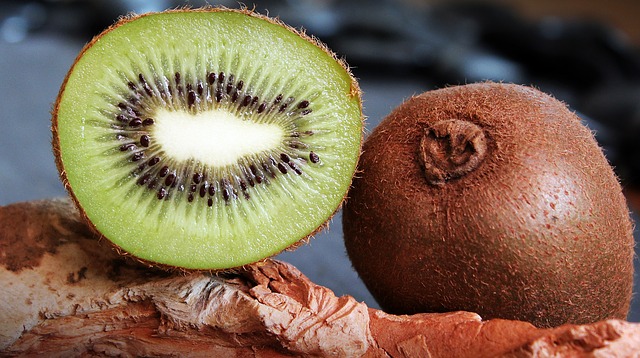Kiwis are in general very god for health. They are high in fiber and multiple vitamins, which makes them a very important addition to our daily diets. During pregnancy, however, we need to be very cautious about what we are putting into our mouths, because that is what will be going through to the baby as well. Usually, in any regular day, we can safely eat around five or six kiwi fruits each day, but all that changes during pregnancy. There is such a lot of advice coming through from all sides when you get pregnant: from mothers, aunts, well wishers, friends who are already mothers, and, of course, the blessed internet. You never really know how much to trust and how much to approach with caution as old wives’ tales.
In this article, we have tried to put together all the reliable data regarding kiwi fruits and their relationship with the pregnant woman. We hope this will be able to dispel the myths and put your mind at rest.
Yes, you can
The good news is, there is no reason why you should not be able to eat kiwi fruits during your pregnancy. These fruits are highly fibrous, and contain a whole lot of vitamins and other nutrients. What’s more, they are also extremely delicious, which means that you will be able to enjoy them as a snack when you are craving for something sweet. They are an infinitely healthier option than a doughnut, and you will not be afraid of putting on unwanted weight from all that extra sugar you will probably give in and consume.
High fiber
Kiwis are very high in fiber, and this makes them a natural laxative. Digestive disorders are very common during pregnancy, and most women report suffering from daily bouts of constipation and bloating. The fiber content in kiwis helps in smoothening the digestive system, improves metabolism, and makes bowel movements softer and much smoother. They are a better option than artificial laxatives because laxatives are known to induce cramps during pregnancy, increasing discomfort.
Vitamin C
It is recommended that expecting mothers eat 80 to 85 grams of Vitamin C every day. Like many other foods, kiwis are also very rich in vitamin C, which makes them great additions to the pregnant woman’s daily diet. Vitamin C is a powerful antioxidant, which helps in fighting free radicals in the body, thus increasing the immune system of both the mother and the baby. Apart from that, Vitamin c also helps in the action of neurotransmitters, which are crucial in developing and enhancing brain function, and will help in the development of the brain of the baby.
Low calories and natural sugars
The kiwi fruit is particularly good for the expecting mother because it is very low in calories and very high in natural sugars. The expecting women tends to crave a lot of sweet, and also feels hungry quite often. It is not a very good idea to load up on sugary candies and ice creams since these contain a lot of artificial and processes sugar, and that can lead to gestational diabetes and unwanted weight gain. Gestational diabetes is a temporary condition which is rare but very harmful to the baby, leading to development defects and even miscarriages. Besides, it is also very harmful for both the mother and the baby if the woman gains any unwanted weight. It is absolutely imperative for the mother to maintain the ideal weight during pregnancy.
Folates
Kiwis are very high in folic acid, which is one of the most essential nutrients for the developing baby, Folic acid helps in the development of the spine and the neural system, thus minimizing the risk of the baby developing any spinal cord and neural tube defects, such as spina bifida.
Some people are allergic to kiwi fruits. If you are, you probably already know, and have avoided them always. However, if you have been very mildly sensitive so as to escape notice so far, your weakened immune system during pregnancy might cause you to become more sensitive to the fruit. As a result you are likely to experience some discomfort, such as breaking out in small hives and light swelling.
Also read: Can I eat grapes during pregnancy?
However, keep in mind that the kiwi is not as allergenic as some other foods such as peanuts, so there is nothing to worry about. Just go to the doctor immediately, and you will be quite fine. Apart from that, kiwis are also quite acidic, and that may not agree with your system during pregnancy; you might experience digestive disorders and mouth sores. It is best to limit your consumption to two or three whole kiwis a day.

